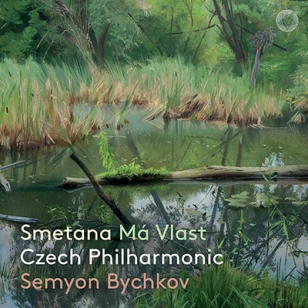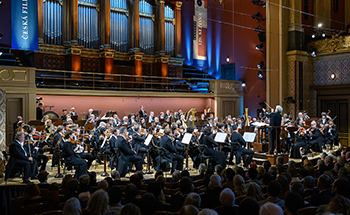Czech Philharmonic
- Orchestra
Concert ScheduleSchedule
Pick up
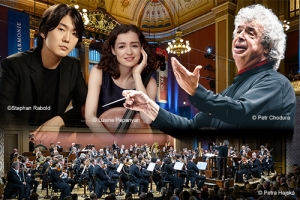
Semyon Bychkov conducts Czech Philharmonic
ProfileProfile
130th SEASON BIOGRAPHY
Chosen as Gramophone’s 2024 ‘Orchestra of the Year’, this season the Czech Philharmonic will be a guest in the most prestigious halls across East Asia – Taiwan, Japan and South Korea – as well as major cities in Germany, Italy, Austria, Luxembourg and Belgium. In the Czech Republic, the orchestra appears at its home, the Rudolfinum in Prague, at festivals including Prague Spring, Dvořák Prague and Smetana Litomyšl, as well as at international festivals such as Grafenegg, George Enescu and Bad Kissingen. Following in the footsteps of Yuja Wang, Magdalena Kožená, Sir András Schiff and Daniil Trifonov, Evgeny Kissin will be the Czech Philharmonic’s 130th season Artist-in-Residence.
Alongside its celebrations of Shostakovich’s 50th anniversary, Ravel’s 150th anniversary and the 150th anniversary of Vltava – the iconic second poem of Má vlast – the Czech Philharmonic will shine a spotlight on contemporary music this season with the appointment of its first ever Composer-in-Residence, Bryce Dessner. The European and Czech premieres of two new works by Dessner will be led by Chief Conductor and Music Director Semyon Bychkov and Principal Guest Conductor Jakub Hrůša. Further national premieres by John Adams, Luigi Dallapiccola, György Kurtág, Witold Lutosławski, Guillaume Connesson and Wynton Marsalis will be conducted by Principal Guest Conductor Sir Simon Rattle, Sir Anthony Pappano, Thomas Adès, Stéphane Denève and Cristian Mǎcelaru. Pappano will return in summer 2026 with the London Symphony Orchestra to perform in Prague as part of a new Czech Philharmonic initiative.
The Czech Philharmonic’s extraordinary and proud history reflects both its location at the heart of Europe and the Czech Republic’s turbulent political history, for which Smetana’s Má vlast (My Country) has become a potent symbol. For the 2024 Year of Czech Music and the 200th anniversary of Smetana’s birth, the orchestra released a new recording of the work with Semyon Bychkov – which recently won the 2025 BBC Music Magazine Orchestral Award – and together they presented a three-day residency at Carnegie Hall as part of Czech Week in New York.
Throughout the orchestra’s history, two features have remained at its core: its championing of Czech composers and its belief in music’s power to change lives. Alongside the Czech Philharmonic Youth Orchestra, Orchestral Academy, and Jiří Bělohlávek Prize for young musicians, a comprehensive education strategy engages with more than 400 schools and an
inspirational music and song programme led by singer Ida Kelarová for the extensive Romany communities, has helped many socially excluded families to find a voice. The Czech Philharmonic additionally runs an annual educational exchange programme with London’s Royal Academy of Music.
An early champion of the music of Martinů and Janáček, the Czech Philharmonic’s first concert in 1896 was an all-Dvořák programme conducted by the composer himself. The orchestra is known for its definitive interpretations of Czech composers, as well as a special relationship with the music of Brahms, Tchaikovsky, and Mahler. The Czech Philharmonic’s first complete, new recording of Mahler’s symphonies for more than 40 years ago will be released by PENTATONE in spring 2026 conducted by Semyon Bychkov.
Correct at May 2025
MoviesMovies
YouTube channelDiscographyDiscography
2024.10.1
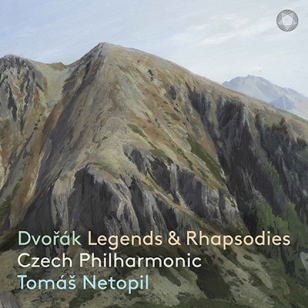
2024.8.8
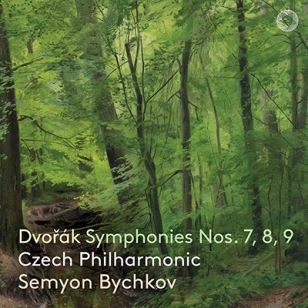
2024.3.8
